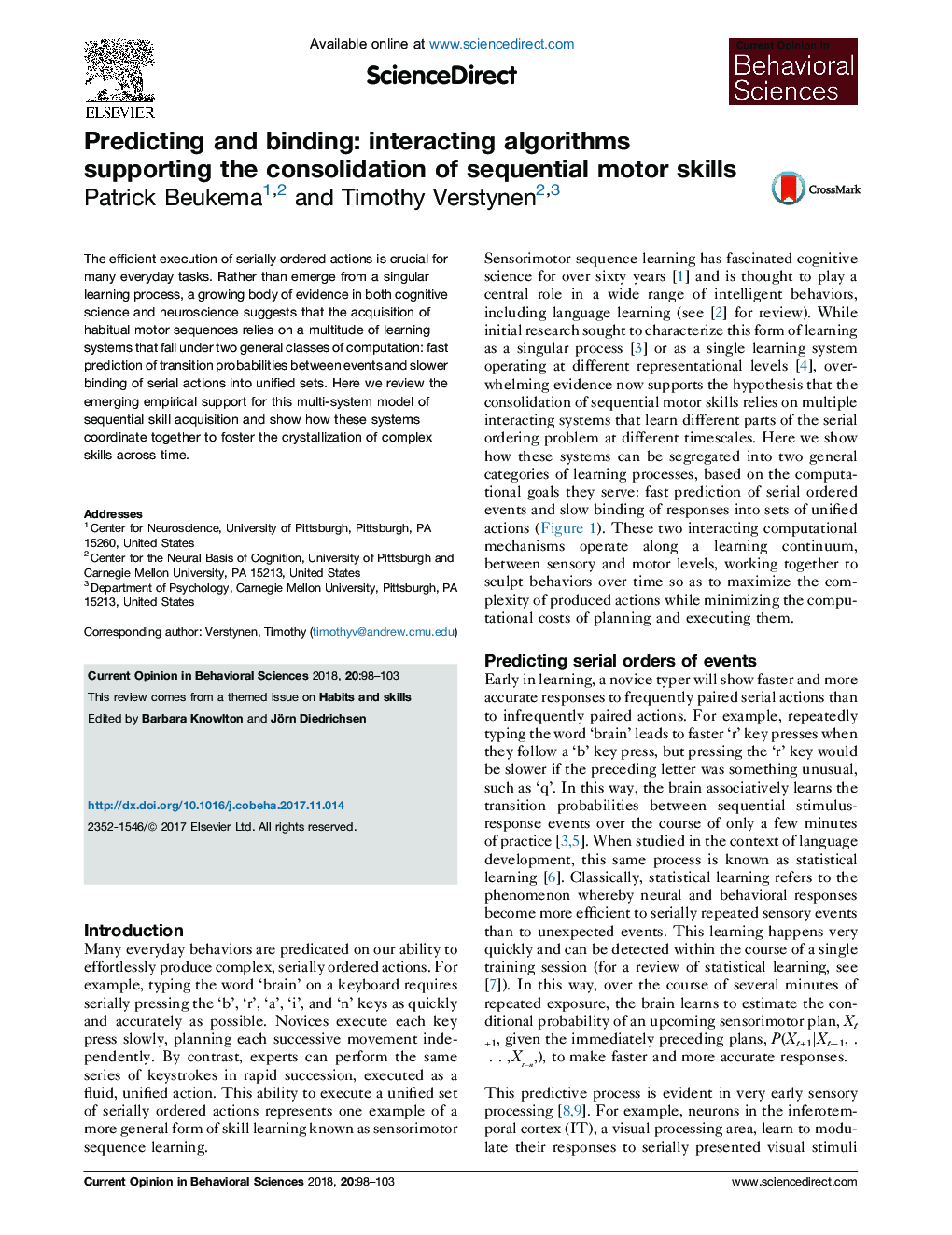| Article ID | Journal | Published Year | Pages | File Type |
|---|---|---|---|---|
| 8838154 | Current Opinion in Behavioral Sciences | 2018 | 6 Pages |
Abstract
The efficient execution of serially ordered actions is crucial for many everyday tasks. Rather than emerge from a singular learning process, a growing body of evidence in both cognitive science and neuroscience suggests that the acquisition of habitual motor sequences relies on a multitude of learning systems that fall under two general classes of computation: fast prediction of transition probabilities between events and slower binding of serial actions into unified sets. Here we review the emerging empirical support for this multi-system model of sequential skill acquisition and show how these systems coordinate together to foster the crystallization of complex skills across time.
Related Topics
Life Sciences
Neuroscience
Behavioral Neuroscience
Authors
Patrick Beukema, Timothy Verstynen,
